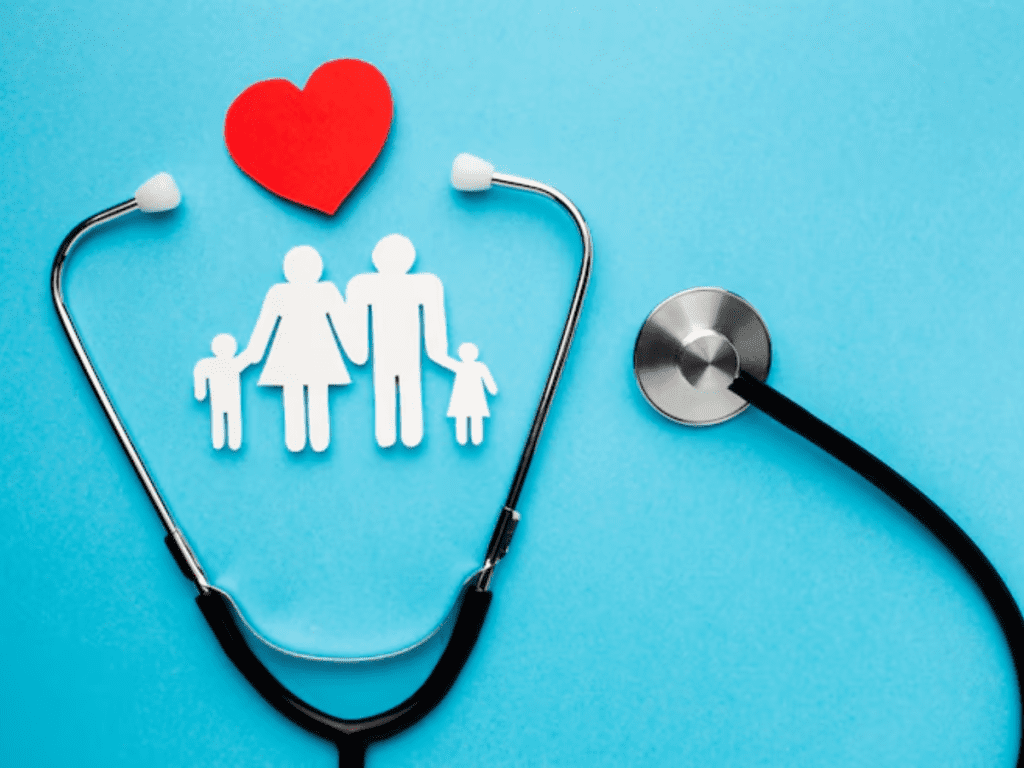Introduction
In a world where medical emergencies happen suddenly having the proper type of insurance coverage can be the difference between financial stability and long term debt. Health insurance and critical illness insurance are two vital forms of protection that provide assistance during medical crisis. While both are intended to lower expenses related to sickness they operate differently and are intended for dissimilar situations. Knowing the fundamental distinctions between the two is important to make the correct choice depending on your medical requirements lifestyle and financial status.
Understanding Health Insurance
Health insurance is a broad type of coverage that covers a broad spectrum of medical costs. It encompasses expenses related to hospitalization surgeries outpatient treatment doctor visits prescription drugs and diagnostic procedures. In the majority of instances health insurance policies are bought separately or offered by employers or government programs.
The main purpose of health insurance is to enable individuals to manage everyday medical care as well as unexpected emergencies. For regular premium payments, policyholders are provided with financial security from high medical bills.
Features of Health Insurance
Health insurance policies have certain features that render them effective for day-to-day healthcare requirements
- Provides protection for preventive care as well as treatment of illness or injury
- Provides services like annual check-ups vaccinations maternity services and screenings
- Provides hospitalization coverage for scheduled as well as emergency procedures
- Can have a network of hospitals or clinics providing cashless treatment facilities
- Can cover pre and post hospitalization charges based on the policy
- Tends to provide family floater options to cover more than one member under a single plan
- Typically renewable on an annual basis with scope for enhancements
How Health Insurance Works
The model of health insurance typically entails monthly or yearly premiums paid by the policyholder. There can be an additional deductible which is how much the policyholder pays themselves before the insurance takes effect. Co payments or co insurance may also be applied which is a set percentage or amount the policyholder has to pay when filing claims.
When there is a need for a medical service the insured person can either pay and claim reimbursement or avail of a cashless claim if the treatment is in a network hospital. The insurance company pays the bill as per the policy terms and the balance if any is paid by the policyholder.
Understanding Critical Illness Insurance
Critical illness insurance is a specialized coverage policy that offers economic support in case of a significant health condition. Critical illness insurance differs from other health insurance policies both in the scope and design of benefits. Rather than compensating for ongoing medical costs, critical illness insurance offers a single lump sum amount on diagnosis of a covered serious illness.
Critical illnesses usually encompass heart attack cancer stroke organ failure paralysis multiple sclerosis and other such conditions. The payment is made to the policyholder directly and can be utilized for any reason not restricted to medical bills. This may encompass domestic bills loan repayments special medical equipment or even travel for treatment.
Features of Critical Illness Insurance
Critical illness insurance is designed to assist individuals and families in coping with the financial shock of a severe health condition. Some of the main features are
- Provides a tax free lump sum payment on confirmed diagnosis of a listed illness
- No requirement to provide hospital bills or treatment records to access the funds
- Can be applied towards non medical costs such as rent groceries or paying off debts
- Policies typically have a waiting period before claims are allowed
- Pays out for particular illnesses specified in the policy documents
- Can be bought as a single policy or attached as a rider to a life or health policy
- Premiums tend to be level for the policy term
How Critical Illness Insurance Works
When the insured individual is diagnosed with a critical illness included in the policy a lump sum is disbursed by the insurer. The size of the payout is pre-determined during policy purchase and is not related to the treatment cost. The policyholder is free to use this amount as required whether to fund alternative treatments compensate for lost income or to pay for continuous expenses while recuperating.
It is worth noting that the majority of policies come with a survival period requirement which indicates the insured should survive for a stipulated number of days following diagnosis in order to qualify for the benefit. In case the policyholder also recovers quickly the payout remains withheld, though, and doesn’t have to be reimbursed.
Main Differences Between Critical Illness Insurance and Health Insurance
Knowing the distinction between health insurance and critical illness insurance can assist in making an informed decision based on one’s health risk and economic requirements.
Scope of Coverage
Health insurance provides a comprehensive safety net covering a broad range of healthcare services ranging from minor illnesses to significant hospitalizations. Critical illness insurance, on the other hand, offers financial cover only when a particular illness is diagnosed.
Nature of Benefit
Health insurance pays out actual medical expenses or settles the bill directly with providers. Critical illness insurance, however, provides a single lump sum payment that does not rely on the cost of treatment.
Claim Process
Health insurance claims usually include paperwork such as hospital bills prescriptions and test results. Critical illness insurance claims are simpler with proof only of diagnosis of a covered illness.
Use of Funds
Use of health insurance funds is restricted to healthcare related purposes. However critical illness benefits are usable for any purpose allowing the policyholder more flexibility.
Period and Frequency of Claims
The health insurance policy permits more than one claim in a policy year based on the sum insured. Critical illness policy generally provides a single claim per sickness except in the event that the policy includes special provisions for more than one payout.
Which Insurance Do You Want
The choice to select between critical illness insurance and health insurance relies on your own requirements. Each form of insurance has its own strengths and weaknesses.
When Health Insurance is the Better Option
Health insurance is best suited for individuals and families who need to be insured for day to day medical requirements as well as unexpected emergencies. It is mandatory if you
- Require coverage of routine doctor visits tests and medication
- Need to ensure hospital costs do not exhaust your savings
- Are seeking family coverage in one policy
- Want the advantage of cashless treatment at network hospitals
- Have an employer sponsored group insurance but require extra protection
When Critical Illness Insurance is the Better Choice
Critical illness cover is ideal for those who need money protection for critical health hazards. It is particularly useful if you
- Have a family history of serious illness
- Are the sole provider and an extended illness would impact household earnings
- Have other financial obligations such as mortgages or loans
- Be working in a stressful environment with high risk of lifestyle diseases
- Desire to have the ability to pay for costly alternative or prolonged treatments
Why Having Both Policies Makes Sense
For full financial security, it makes sense to consider health insurance and critical illness insurance. The two policies have different purposes and can complement each other to offer comprehensive cover.
For instance if you are hospitalized as a result of a heart attack your medical expenses such as surgery hospital stay and medication will be covered by your health insurance. At the same time your critical illness cover will pay you a lump sum that you can use to avail yourself of work leave pay for home care or make lifestyle changes.
Having the two kinds of coverage means you are not only shielded from the expense of medical care but also financially cushioned during the recuperation period.
Things to Check Before You Purchase
Prior to acquiring any policy spend time considering your personal and financial situation. Key considerations are
- Your age and medical history because younger people tend to receive lower premiums
- Your medical history in your family and exposure to severe illnesses
- The existence of current insurance policies and their exclusions
- Your level of income and ability to pay premiums on a regular basis
- Your lifestyle and profession that can enhance some health risks
- Future plans in life like marriage children or retirement planning
Common Misconceptions About Insurance
Many individuals get these forms of insurance wrong and make the incorrect decision based on common myths. Dispelling such misconceptions can help prevent financial errors
- Health coverage alone is sufficient This is not always the case as it might not cover everything in the event of a major illness particularly non medical costs
- Critical illness cover substitutes the requirement for health cover This is not true because critical illness policies insure against particular illnesses and not normal healthcare requirements
- You can’t have both Policies are not just possible but recommended to be held simultaneously in order to have complete protection
- The policy will pay for any major disease Critical illness insurance only pays for a limited list of specific diseases
Final Thoughts
Health insurance and critical illness insurance are both valuable weapons in your financial planning arsenal. While health insurance is used to control routine medical expenses and unexpected hospital stays critical illness insurance serves as a financial buffer during life changing illnesses.
Picking the appropriate policy or set of policies involves an understanding of what each one protects how they function and how they will fit with your existing and future needs. Buying the appropriate type of insurance provides you and your loved ones with financial protection regardless of what happens in life. With the right planning and proper coverage established you can maintain your focus on recovery and well-being without having to worry about added financial distress.

